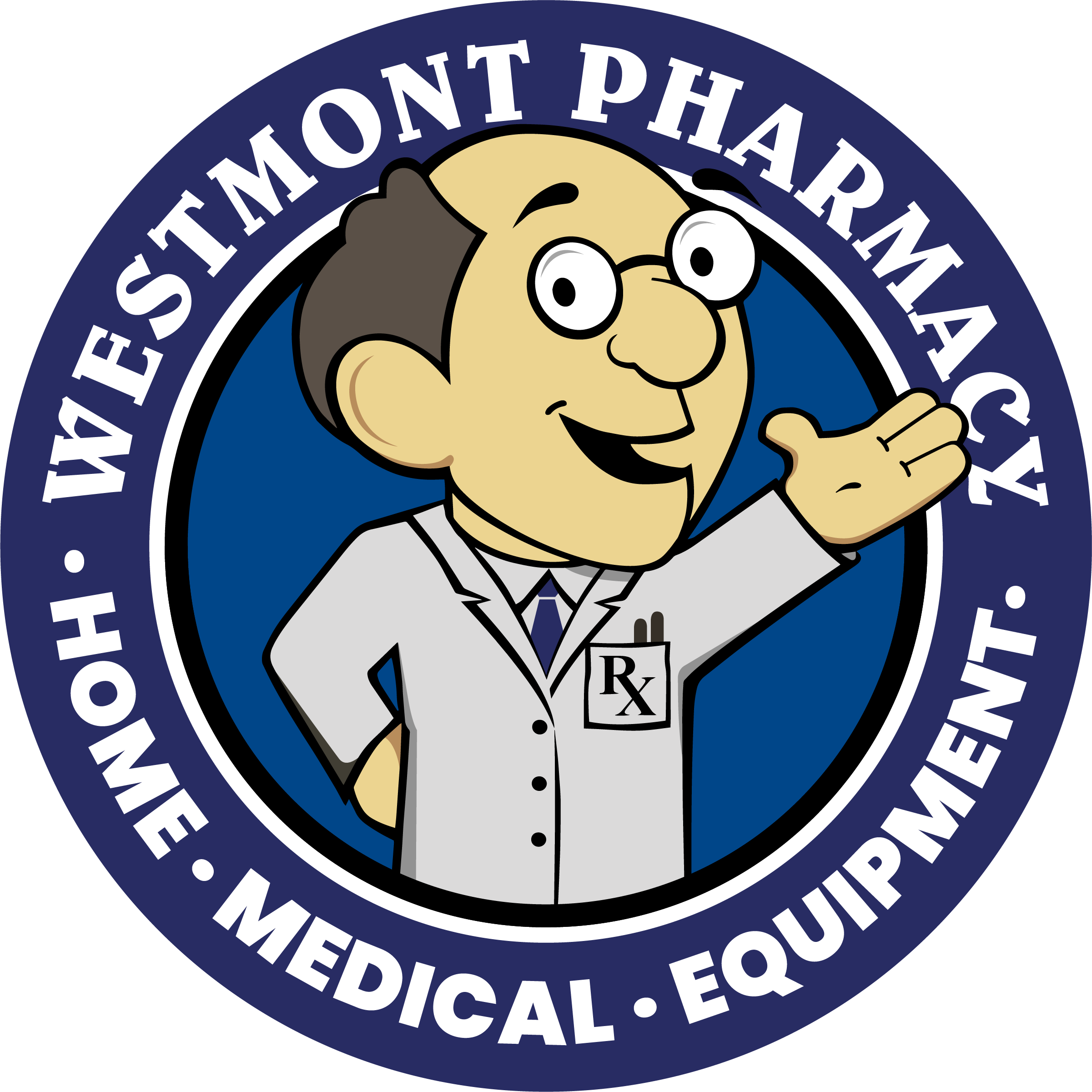The Complete Guide to Compounding Pharmacies and Customized Medications

Why Compounding Pharmacies Matter
When it comes to personalized health care, compounding pharmacies play a crucial role. They create customized medications tailored to fit the unique needs of each patient. This means everything is made specifically for you—whether it’s a different dosage, form, or even flavor of medication.
Here’s a quick answer if you’re searching for a compounding pharmacy:
- Customized Medications: Tailored to your specific needs
- Form & Flavor: Adjusted for easier consumption
- Allergy-Friendly: Formulations without harmful ingredients
- Precision Dosage: Exact strength required by your body
Imagine a scenario where a child cannot swallow a pill. A compounding pharmacy can turn that pill into a flavored liquid, making medication time easier and more pleasant. Your health is unique, and your medications should be too.
I’m Sazan Sylejmani, a seasoned Pharmacy Manager with a Doctorate in Pharmacy from Midwestern University Chicago College of Pharmacy. My experience in patient counseling and personalized care equips me to guide you through the benefits of a compounding pharmacy to ensure you receive the best possible care.
Let’s dig deeper into what makes compounding pharmacies indispensable in modern healthcare.
Relevant articles related to compounding pharmacy:
– compounding lab pharmacy
– five star compounding
What is a Compounding Pharmacy?
A compounding pharmacy creates custom-made medications specifically for you. These medications are not mass-produced but are mixed and prepared by licensed pharmacists to meet your unique needs. Whether it’s adjusting the dosage, changing the form, or removing an allergen, compounding pharmacies offer a personalized approach to medication.
Difference Between Compounding Pharmacists and Regular Pharmacists
While all pharmacists are trained in basic compounding, compounding pharmacists undergo additional education and specialized training. They learn advanced techniques to prepare medications that are not commercially available. This specialized training ensures they can safely and effectively create custom medications.
Key Differences:
- Training: Compounding pharmacists receive advanced training beyond standard pharmacy school.
- Equipment: They invest in specialized equipment like mortar and pestles, graduated cylinders, and balances.
- Focus: Compounding pharmacists spend most of their time creating custom medications, while regular pharmacists primarily dispense commercially available drugs.
Examples of Compounded Medications
Compounded medications can address a variety of needs. Here are some common examples:
Pain Medications
Compounding pharmacies can create pain relief medications in forms that are easier to use. For example, a patient who cannot swallow pills might receive their pain medication in a topical cream form.
Hormone Replacement Therapy
For those needing hormone replacement, such as women experiencing menopause, compounding pharmacies can prepare bioidentical hormones. These hormones are synthesized to be chemically identical to those produced by the human body, providing a more natural treatment option.
Customized Dosage Forms
Sometimes, the standard form of a medication is not suitable for a patient. Compounding pharmacies can alter the form to make it easier to take. For instance, a medication might be transformed into a liquid, gel, or suppository based on the patient’s needs.

Compounding pharmacies are state-regulated, ensuring they adhere to strict guidelines to maintain quality and safety. This regulation ensures that the medications you receive are prepared in a controlled environment, meeting high standards.
In summary, compounding pharmacies offer a personalized approach to healthcare, providing custom-made medications tailored to your specific needs. Whether you need a different dosage, a unique form, or an allergen-free medication, compounding pharmacies can help.
Benefits of Compounding Pharmacies
Compounding pharmacies offer a range of benefits custom to meet the unique needs of each patient. From customizing the strength or dosage to flavoring medications for better palatability, these specialized pharmacies ensure that your medication is just right for you.
Customizing Strength or Dosage
One of the primary benefits of a compounding pharmacy is the ability to customize the strength or dosage of a medication. This is particularly important for:
- Elderly patients who may need a reduced strength of medication.
- Children who require smaller doses or have trouble swallowing pills.
- Patients with specific medical conditions that necessitate a unique dosage not available in commercially produced medications.
For example, if a child struggles with swallowing a large pill, a compounding pharmacy can create a liquid version of the medication in the exact strength prescribed by the doctor. This ensures the child gets the necessary treatment without the stress of taking a pill.
Flavoring Medications
Medications don’t always taste good, which can make it difficult for both children and pets to take them. Compounding pharmacies can add flavors to make medications more palatable.
- Children: Imagine trying to give a bitter-tasting medicine to a toddler. Compounding pharmacies can add flavors like grape or bubblegum to make the medicine more appealing.
- Pets: Pets often resist taking medication. Compounding pharmacies can create flavored medications that pets are more likely to accept. For instance, a chicken-flavored liquid can make medication time less stressful for both the pet and the owner.
Reformulating to Exclude Allergens
Many people have allergies to common ingredients found in medications, such as dyes, gluten, or lactose. Compounding pharmacies can reformulate medications to exclude these allergens, making them safer for patients with specific sensitivities.
- Dye-Free: Some patients are allergic to the dyes used in commercially available medications. Compounding pharmacies can create dye-free versions of these medications.
- Gluten-Free: For patients with celiac disease or gluten sensitivity, compounding pharmacies can ensure that medications are gluten-free.
- Lactose-Free: Lactose is a common filler in many medications. Compounding pharmacies can create lactose-free formulations for those who are lactose intolerant.
By offering these personalized solutions, compounding pharmacies ensure that medications are not only effective but also safe for every patient.
In summary, compounding pharmacies provide a highly personalized approach to medication, addressing individual needs, specific patient requirements, and making medications easier to take and safer for those with allergies. Whether you need a custom dosage, a flavored medication, or an allergen-free formulation, compounding pharmacies have you covered.
Next, let’s dig into the risks and regulations associated with compounded drugs to understand how safety and quality are maintained.
Risks and Regulations of Compounded Drugs
Compounded drugs offer many benefits, but they also come with certain risks and regulations to ensure patient safety and medication quality.
Potential Risks
Contamination: Poor compounding practices can lead to contamination. In 2012, a fungal meningitis outbreak linked to contaminated steroid injections from a compounding pharmacy resulted in over 100 cases and several deaths. Contaminated drugs can cause serious health issues, emphasizing the need for strict quality control.
Incorrect Dosage: Compounding errors can result in medications that are either too strong or too weak. For instance, random tests in Texas found that as many as one in four compounded drugs did not meet potency standards. Incorrect dosages can lead to ineffective treatment or harmful side effects.
Patient Safety: The safety of compounded drugs depends heavily on the practices of the compounding pharmacy. Poor practices can compromise the quality, leading to potential health risks for patients.
Regulatory Oversight
FDA Oversight: The FDA oversees the safety and integrity of the active pharmaceutical ingredients (APIs) used in compounded medications. However, compounded drugs are not FDA-approved, meaning they do not undergo the same rigorous testing as commercially manufactured drugs. The FDA steps in when there are significant safety concerns, such as when compounded drugs are found to contain bacteria or other impurities, as seen in the case of knockoff versions of Mounjaro and Zepbound.
State Boards of Pharmacy: State boards primarily regulate the practice of compounding. They ensure that pharmacies comply with state laws and guidelines. Each state has its own regulations, which can lead to variability in how compounding pharmacies are monitored and inspected.
USP Standards: The United States Pharmacopeial (USP) Convention sets quality standards for compounding. USP General Chapters <795>, <797>, and <800> provide detailed guidelines on compounding practices, including the preparation of nonsterile and sterile medications and handling hazardous drugs. Compliance with these standards is considered the minimum practice for ensuring the safety and quality of compounded medications.
503A Traditional Pharmacies vs. 503B Outsourcing Facilities: Traditional compounding pharmacies (503A) compound medications based on individual prescriptions and are regulated by state boards. Outsourcing facilities (503B), on the other hand, can produce medications in bulk for healthcare facilities and are subject to FDA inspections and stricter regulations.
In summary, while compounded drugs offer personalized medication solutions, they also come with risks that necessitate stringent regulatory oversight. Both federal and state authorities work together to ensure that compounding pharmacies adhere to high standards of safety and quality.
Next, let’s explore the types of compounding pharmacies and their specific roles in providing customized medications.
Types of Compounding Pharmacies
Compounding pharmacies come in two main types: 503A traditional pharmacies and 503B outsourcing facilities. Each type has specific roles and regulations that ensure they meet the needs of patients and healthcare providers.
Traditional Compounding Pharmacies (503A)
503A pharmacies are what most people think of when they hear “compounding pharmacy.” These pharmacies create customized medications based on individual prescriptions. They are primarily regulated by state boards of pharmacy, which means the rules can vary from state to state.
Key Features:
– Individual Prescriptions: Medications are compounded for specific patients based on a healthcare provider’s prescription.
– State-Regulated: Each state has its own set of regulations that these pharmacies must follow. This ensures they meet local standards for safety and quality.
– Small-Scale Production: These pharmacies typically produce medications in smaller quantities, custom to the unique needs of individual patients.
Example: If a patient is allergic to a dye in a standard medication, a 503A pharmacy can create a dye-free version of the drug.
Outsourcing Facilities (503B)
503B outsourcing facilities were established to address the need for larger-scale compounding, particularly for hospitals and clinics. These facilities can produce medications in bulk and are subject to more stringent regulations by the FDA.
Key Features:
– Bulk Compounding: Unlike 503A pharmacies, 503B facilities can produce large batches of compounded medications, which can then be distributed to healthcare facilities.
– FDA-Inspected: These facilities are regularly inspected by the FDA to ensure they meet high standards for safety and quality. This includes adherence to Good Manufacturing Practices (GMP).
– Not Always Patient-Specific: While 503A pharmacies compound medications based on individual prescriptions, 503B facilities can produce medications that are not patient-specific, making them ideal for hospital use.
Example: A hospital facing a shortage of a critical medication can turn to a 503B facility to obtain a bulk supply, ensuring that patient care is not interrupted.
Quote: “If I can’t get a product from my normal channel but a drug compounder is able to compound that preparation for me, it’s a way that we can get medications without interrupting care,” says Leigh Briscoe-Dwyer, Chief Pharmacy and Medication Safety Officer for North Shore – LIJ Health System.
In summary, both 503A and 503B pharmacies play crucial roles in providing customized medications. While 503A pharmacies focus on individual patient needs, 503B facilities ensure that healthcare providers have access to the medications they need, even in bulk.
Next, let’s look at compounded medications for weight loss and how they can be custom to meet specific health goals.
Compounded Medications for Weight Loss
Benefits of Tirzepatide
When it comes to weight loss, Tirzepatide is a standout option. Available in popular brands like Mounjaro and Zepbound, Tirzepatide is known for its effectiveness and versatility.
Mounjaro and Zepbound
Mounjaro and Zepbound are FDA-approved medications primarily used for managing type 2 diabetes but have shown significant promise in weight loss. Both medications are GLP-1 receptor agonists, which means they help control blood sugar levels and reduce appetite. This dual action makes them highly effective for weight management.
- Mounjaro: Known for its potent blood sugar control and appetite suppression, Mounjaro has been widely used off-label for weight loss.
- Zepbound: A newer option approved in 2023, Zepbound combines GLP-1 and GIP receptor agonism, offering improved weight loss benefits.
Effectiveness
Studies have shown that Tirzepatide can lead to significant weight loss. Patients using Mounjaro or Zepbound have reported losing up to 15% of their body weight within a year. This makes these medications some of the most effective options available for weight loss.
- Quick Results: Patients often see noticeable weight loss within the first few months of treatment.
- Sustained Weight Loss: Long-term use helps maintain weight loss, making it easier to keep the pounds off.
Profit Margins
From a business perspective, Tirzepatide offers excellent profit margins. Both Mounjaro and Zepbound are high-demand medications, and their effectiveness ensures patient adherence, leading to repeat prescriptions.
- High Demand: The effectiveness of these medications drives high patient demand, ensuring steady sales.
- Repeat Prescriptions: Satisfied patients are likely to continue using these medications, contributing to consistent revenue.
Customization
Compounding pharmacies can customize Tirzepatide formulations to meet individual patient needs. This includes adjusting dosages, combining medications, or creating allergy-free versions.
- Custom Dosages: Compounded medications can be adjusted to the exact dose needed, improving efficacy and reducing side effects.
- Combination Therapy: Multiple medications can be combined into a single dose, simplifying treatment regimens.
- Allergy-Free Options: Inactive ingredients like dyes or preservatives can be removed to create formulations suitable for patients with allergies.
In summary, Tirzepatide in the form of Mounjaro and Zepbound offers both effectiveness in weight loss and significant profit margins for pharmacies. Its ability to be customized further improves its appeal, making it a top choice for both patients and healthcare providers.
Next, we’ll answer some frequently asked questions about compounding pharmacies to help you better understand their role and benefits.
Frequently Asked Questions about Compounding Pharmacies
What does a compounding pharmacy do?
A compounding pharmacy creates customized medications custom to meet the unique needs of individual patients. Unlike mass-produced drugs, compounded medications are mixed from scratch by a licensed pharmacist based on a doctor’s prescription. This allows for:
- Customizing strength or dosage: Ideal for patients needing specific doses that aren’t commercially available.
- Flavoring medications: Makes it easier for children or pets to take their medicine.
- Reformulating to exclude allergens: Removes unwanted ingredients like lactose, gluten, or dyes.
Are compounded drugs FDA-approved?
Compounded drugs are not FDA-approved in the same way as commercially available medications. Instead, they are made based on a prescription for a specific patient. While they don’t go through the FDA approval process, they still follow strict guidelines to ensure safety and effectiveness.
Fact: The FDA works with state pharmacy boards to regulate compounding pharmacies, ensuring they use high-quality ingredients and follow precise protocols.
How can I ensure the quality of compounded medications?
Ensuring the quality of compounded medications involves a few steps:
- Ask your pharmacist: Always inquire if your medication is compounded and ask about the processes and standards they follow.
- Check accreditation: Look for pharmacies accredited by the Pharmacy Compounding Accreditation Board (PCAB). Accredited pharmacies meet rigorous quality standards.
- Consult your healthcare provider: They can guide you on the reliability of the compounding pharmacy.
Quote: “Compounding pharmacists work with doctors, veterinarians, and their patients to determine the best-tolerated forms and strengths for their medications.”
By asking the right questions and choosing an accredited pharmacy, you can ensure you receive high-quality compounded medications custom to your needs.
Conclusion
In summary, compounding pharmacies offer a unique and essential service by creating customized medications tailored to each patient’s specific needs. This includes adjusting dosages, flavoring medications, and excluding potential allergens. These personalized solutions ensure that patients receive the most effective and suitable treatments, which is especially beneficial for those with unique medical requirements.
At Westmont Pharmacy, we take pride in our long-standing tradition of providing personalized care and high-quality compounded medications. Located in Westmont, IL, and established in 1930, we have built a reputation as a trusted local healthcare provider. Our expertise in prescription compounding, medication synchronization, and medical equipment makes us a one-stop shop for all your healthcare needs.
Our pharmacists are highly trained and committed to delivering the best possible care. As a full-service pharmacy, we go beyond the standard offerings to ensure that each patient receives the right medication in the right form. Whether it’s a child who needs a liquid version of a medication or a pet requiring a palatable formulation, we are here to help.
By choosing Westmont Pharmacy, you are opting for personalized and professional care. Our team works closely with doctors, veterinarians, and patients to provide medications that are both effective and easy to use. Trust us to be your healthcare partner, dedicated to meeting all your unique needs with the highest standards of quality and care.
For more information or to discuss your specific medication needs, don’t hesitate to contact us. We are here to support you on your healthcare journey.

